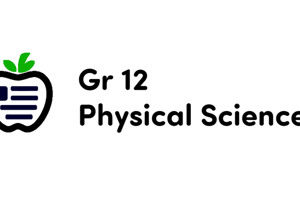Podcast
Questions and Answers
Which type of chemical reaction involves the formation of covalent bonds between atoms or molecules?
Which type of chemical reaction involves the formation of covalent bonds between atoms or molecules?
- Combustion reaction
- Double displacement reaction
- Synthesis reaction (correct)
- Decomposition reaction
What type of bond is formed when one atom donates a pair of electrons while partially receiving electron density from another atom?
What type of bond is formed when one atom donates a pair of electrons while partially receiving electron density from another atom?
- Ionic bond
- Coordinate covalent bond (correct)
- Metallic bond
- Hydrogen bond
Which reaction is an example of a synthesis reaction involving the formation of water?
Which reaction is an example of a synthesis reaction involving the formation of water?
- CH₄ + 2O₂ → CO₂ + 2H₂O
- CaCO₃ → CaO + CO₂
- 2NaCl → 2Na + Cl₂
- 2H₂ + O₂ → 2H₂O (correct)
What is the primary characteristic of synthesis reactions?
What is the primary characteristic of synthesis reactions?
Which of the following reactions is an example of a coordinate covalent bond formation?
Which of the following reactions is an example of a coordinate covalent bond formation?
Under what conditions do synthesis reactions typically occur?
Under what conditions do synthesis reactions typically occur?
Which type of reaction occurs when chemical bonds break down under specific conditions like high temperatures or exposure to light?
Which type of reaction occurs when chemical bonds break down under specific conditions like high temperatures or exposure to light?
In a displacement reaction, what happens?
In a displacement reaction, what happens?
What is the result of a double displacement reaction?
What is the result of a double displacement reaction?
What type of reaction occurs when an acid reacts with a base?
What type of reaction occurs when an acid reacts with a base?
What is an example of an acid-base reaction?
What is an example of an acid-base reaction?
In which type of reaction does an acid dissociate into hydrogen ions (H⁺) and a conjugate base?
In which type of reaction does an acid dissociate into hydrogen ions (H⁺) and a conjugate base?
Flashcards are hidden until you start studying
Study Notes
Types of Chemical Reactions
Understanding chemical bonding requires knowledge of the different types of chemical reactions. These reactions involve the breaking or formation of chemical bonds between atoms or molecules, leading to the creation of new compounds. There are several categories of chemical reactions, each characterized by specific conditions and mechanisms. Here, we explore the main types of chemical reactions that contribute to the vast array of chemical interactions observed in various systems.
Synthesis (Syntheses)
Covalent Bond Formation
One of the most common types of chemical reactions is synthesis, which involves the formation of covalent bonds between atoms or molecules. This reaction usually takes place under mild conditions and results in the creation of a new compound with unique properties. Examples include the formation of water (H₂O) through the combination of hydrogen gas (H₂) and oxygen gas (O₂), and the reaction between methane (CH₄) and oxygen gas (O₂) leading to carbon dioxide (CO₂) and water (H₂O).
Coordinate Covalent Bond Formation
Coordinate covalent bonds are formed through the sharing of electrons between two atoms in which one atom donates a pair of electrons while only partially receiving electron density from another atom. An example is the formation of ammonia (NH₃) when nitrogen gas (N₂) reacts with hydrogen gas (H₂). Here, nitrogen shares its electrons with the hydrogens, forming a coordinate covalent bond.
Decomposition or Breaking Bonds
Decomposition reactions occur when chemical bonds break down under specific conditions, such as high temperatures or exposure to light. One example is the decomposition of hydrogen peroxide (H₂O₂) into water (H₂O) and oxygen gas (O₂) when heated or exposed to certain catalysts like manganese dioxide (MnO₂). Decomposition can also occur spontaneously, as in the case of hydrogen peroxide, which breaks down over time to release oxygen gas.
Displacement Reactions
In displacement reactions, also known as single replacement reactions, an atom or ion from one element replaces an atom or ion from another element in a compound. For example, when zinc (Zn) reacts with copper sulfate (CuSO₄), zinc displaces copper from the sulfate ion, forming zinc sulfate (ZnSO₄) and copper metal (Cu).
Double Displacement Reactions
Double displacement reactions, also known as double replacement reactions, involve the exchange of ions between two compounds. An example is the reaction between silver nitrate (AgNO₃) and potassium chloride (KCl), where the nitrate ions (NO₃⁻) and chloride ions (Cl⁻) exchange places, resulting in the formation of silver chloride (AgCl) and potassium nitrate (KNO₃).
Neutralization Reactions
Neutralization reactions occur when an acid reacts with a base, resulting in the formation of a salt and water. For instance, when hydrochloric acid (HCl) reacts with sodium hydroxide (NaOH), hydrogen chloride (HCl) reacts with sodium hydroxide (NaOH) to form sodium chloride (NaCl) and water (H₂O).
Acid-Base Reactions
Acid-base reactions involve the combination of an acid with a base or the dissociation of an acid into its constituent hydrogen ions (H⁺) and conjugate base. For example, when acetic acid (CH₃COOH) reacts with sodium hydroxide (NaOH), it forms sodium acetate (NaC₂H₃O₂) and water (H₂O).
These types of chemical reactions play a crucial role in understanding chemical bonding and are essential for creating new compounds and synthesizing various materials used in industries, technologies, and everyday products.
Studying That Suits You
Use AI to generate personalized quizzes and flashcards to suit your learning preferences.




